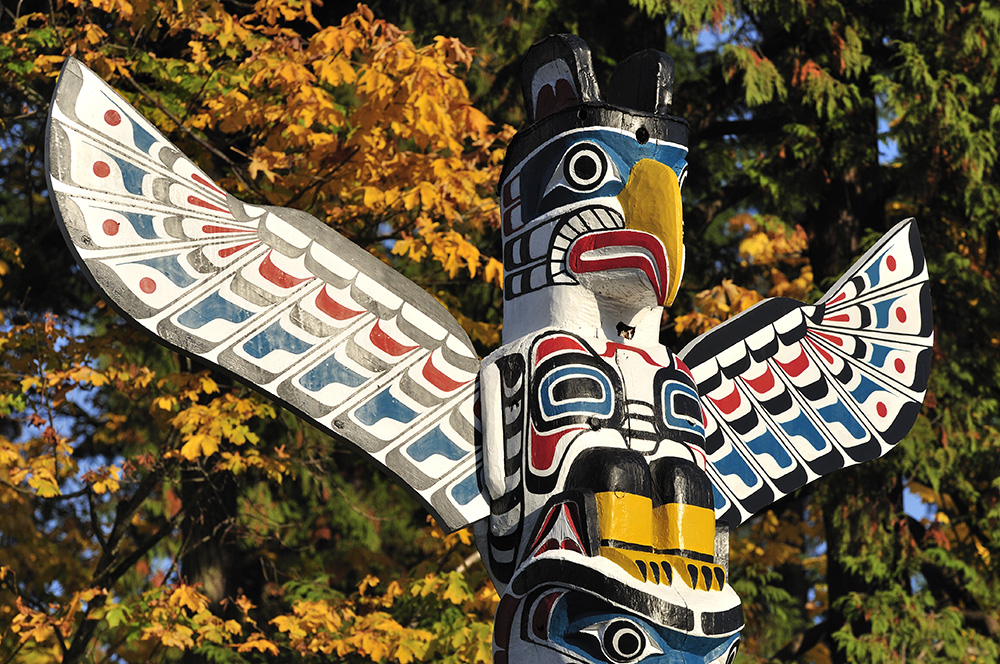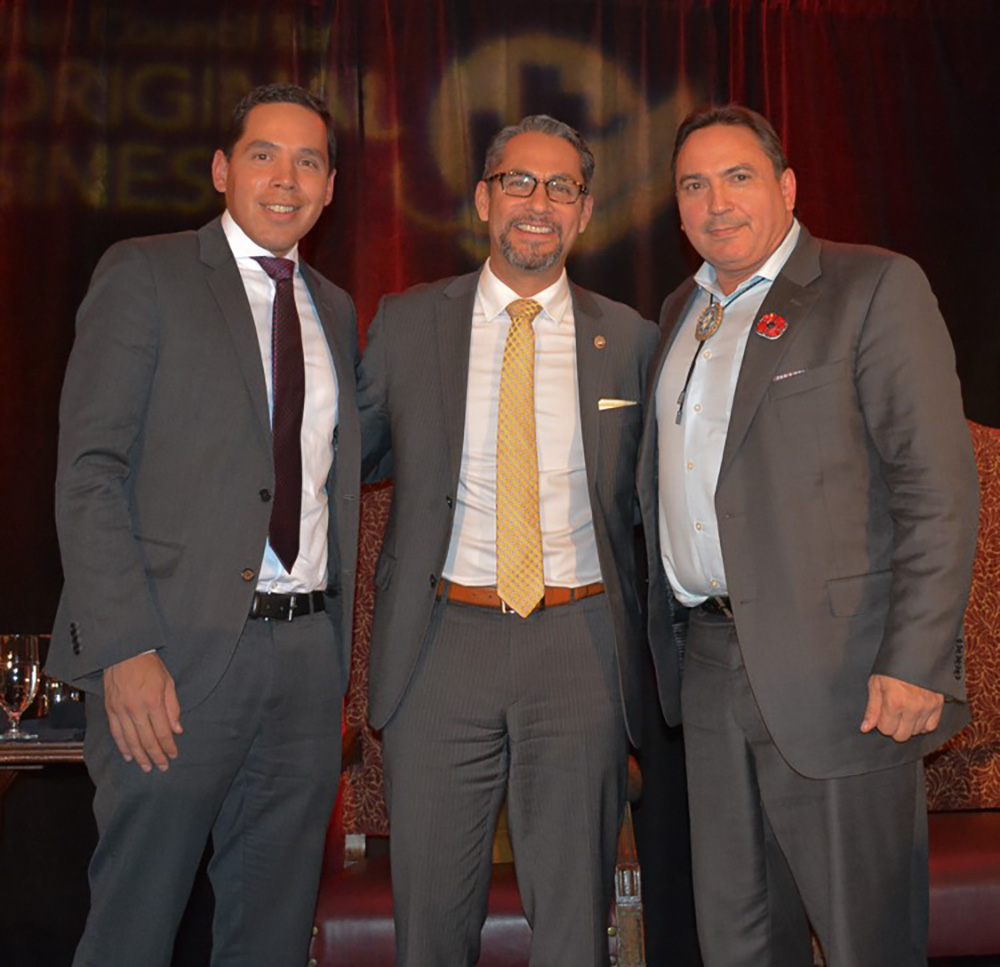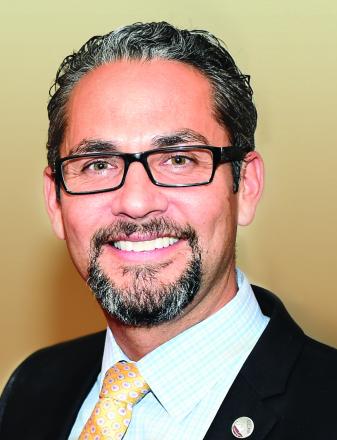Change Agent 2017

Aboriginal issues regularly make headlines in Canada, from pipelines to the National Inquiry into Missing and Murdered Indigenous Women and Girls, and Gord Downie’s plea at the Tragically Hip’s final tour stop in Kingston that we improve the lives of Indigenous people.
“I’ve never heard the words ‘Aboriginal’, ‘Métis’, ‘First Nations’ and ‘Inuit’ used as often as I have in the last year and half,” says Jean Paul (JP) Gladu, President of the Canadian Council for Aboriginal Business (CCAB).
As the leader of this growing, Toronto-based NGO, JP is on the front line of the national debate on Aboriginal issues, specifically those related to the business sector. “Our mission at the CCAB is to grow a diverse and strong Indigenous business community by building business relationships for the mutual benefit of the Indigenous and non-Indigenous business communities,” he explains.
“Canadians at least understand the importance of asking the questions,” JP says. “You don’t necessarily have to understand everything, but that’s why asking questions is so incredibly important.”
In a November 2016 interview with JP, Smith Magazine asked questions on behalf of our readers to find out how Canada’s business community can help the country and its Indigenous peoples get their relationship back on track.
Q&A with JP Gladu
Q: You spend a lot of your time on the road, speaking to Canada’s corporate and political leaders. What arguments do you use to encourage them to work with and support Aboriginal businesses?
JP: I always welcome the opportunity to showcase the valuable contribution of the Aboriginal business sector to Canada’s bottom line. This year alone, our Indigenous businesses are expected to contribute about $12 billion to Canada’s economy, which isn’t so bad when you think that we’re only four per cent of the population.
According to a recent TD market research report, the total Aboriginal GDP is about $30 billion, which is growing at a rate of 5.7 percent, year after year. (Of this total, $12 billion is generated by the Aboriginal business sector.) When I’m speaking to business leaders, I’ll often ask, “Which market do you want to be a part of: the Indigenous [growth] market, at 5.7 per cent, or the overall Canadian market, which is growing at a pace of about 1.5 per cent?” I know where I’d want to be — and I didn’t need an MBA to figure it out!
Twenty per cent of Canada’s GDP comes from natural resources, all of which are on traditional territory of one Indigenous community or another. Our communities have won many court cases that relate to harvesting and extracting our natural resources, and this creates uncertainty for future investors. It’s well known that investors don’t like uncertainty; borrowing money becomes more difficult and expensive. So industries in this sector are recognizing the need to build relationships with the local communities and that by doing so, they can do more than just coexist, both they and the communities can thrive.
There are many examples of companies across the country that have built productive relationships with local Indigenous communities. These businesses have benefited, as have the local Indigenous communities. Such companies are the ones that will have the competitive edge in the future.

The CCAB hosts numerous events across Canada each year, including the second annual Aboriginal Economic Development Corporation Conference held in Banff in October 2016. Pictured with JP Gladu (centre) are attendees Natan Obed, President, Inuit Tapiriit Kanatami (left) and National Chief Perry Bellegarde (right).
JP: In my 25-year career, first in the forestry sector and now as the President of the CCAB, I’ve seen an evolution in how Indigenous businesses are making their mark. Years ago, having people in a community able to land jobs in mining or oil and gas or forestry was considered progress. Now there are many Aboriginal businesses that own and operate saw mills, oil-and-gas exploration firms and mining companies, among many others.
One such company is The Bouchier Group in Fort McKay, Alberta. Owners Dave Bouchier, who’s from the Fort McKay First Nation, and Nicole Bourque-Bouchier, who is Sioux-Cree, started their business in the Fort McMurray oil sands with one leased bulldozer. They slowly built up the business but were still finding it difficult to compete against the larger players in their field. So they found a partner, Carillion, a British multinational construction-services company, which took a minority stake in the company. Bouchier is now generating millions in revenue, and employs a workforce of 850 — 38 per cent of whom are First Nations and Métis people.
Another positive development is Indigenous communities having equity positions in natural-resource projects. The Fort McKay First Nation, near Fort McMurray, has a 33 per cent stake in one of Suncor Energy’s oil-field projects, for example. The Lower Mattagami Project, between Kapuskasing and Moosonee, Ontario, is a partnership between Ontario Power Generation (OPG) and the Moose Cree First Nation, which has a 25 per cent equity share.
Of course, there are Aboriginal business success stories in many other industry sectors. The Whitecap Dakota First Nation, south of Saskatoon, Sask., is a prime example. Under Chief Darcy Bear, Whitecap created a business-friendly environment that has attracted approximately $100 million in capital investment to date. The Dakota Dunes Golf Resort and the 80,000 square-foot Dakota Dunes Casino are just two examples of Whitecap’s progressive approach. As a result of these efforts, the community has experienced an unemployment rate reduction from 70% to 5%. It’s hardly surprising that the CCAB honoured Chief Darcy Bear as its Aboriginal Business Hall of Fame Lifetime Achievement Laureate in 2016.
Q: What are some of the roadblocks that the CCAB has identified as hindering the growth of the Aboriginal business sector? Are there solutions that could be readily implemented?
JP: One of the things we need to tackle is the way that procurement happens in this country; there are barriers that Aboriginal businesses face, due to many systemic issues, such as preconceptions of who we are as Indigenous people, and, yes, I’ll say it: racism.
One of the key messages the CCAB is committed to delivering is that we need to start using different supply-chain practices. Awarding additional points in the contracting process to Aboriginal companies and to firms that work with the Aboriginal community will help level the playing field. As a result, these companies will get more contracts, which will improve their bottom line and the economic health of the Aboriginal communities.
Governments and large companies that share these values can also help by driving this message all the way down the supply chain, to encourage their suppliers to embrace the practice of working with Aboriginal businesses.
It takes data to exert this type of influence, and at the CCAB we do a lot of great research, the best in the country, in my opinion, when it comes to Indigenous business issues. Our data analyses show that these models work, and that there are benefits to tweaking business practices to give Aboriginal businesses a better chance at success.
If we start to get this relationship right, or if we start to get it right more often, there can be incredible benefits for everyone. This is not a one sector wins/one sector loses scenario; this is how we all win.


